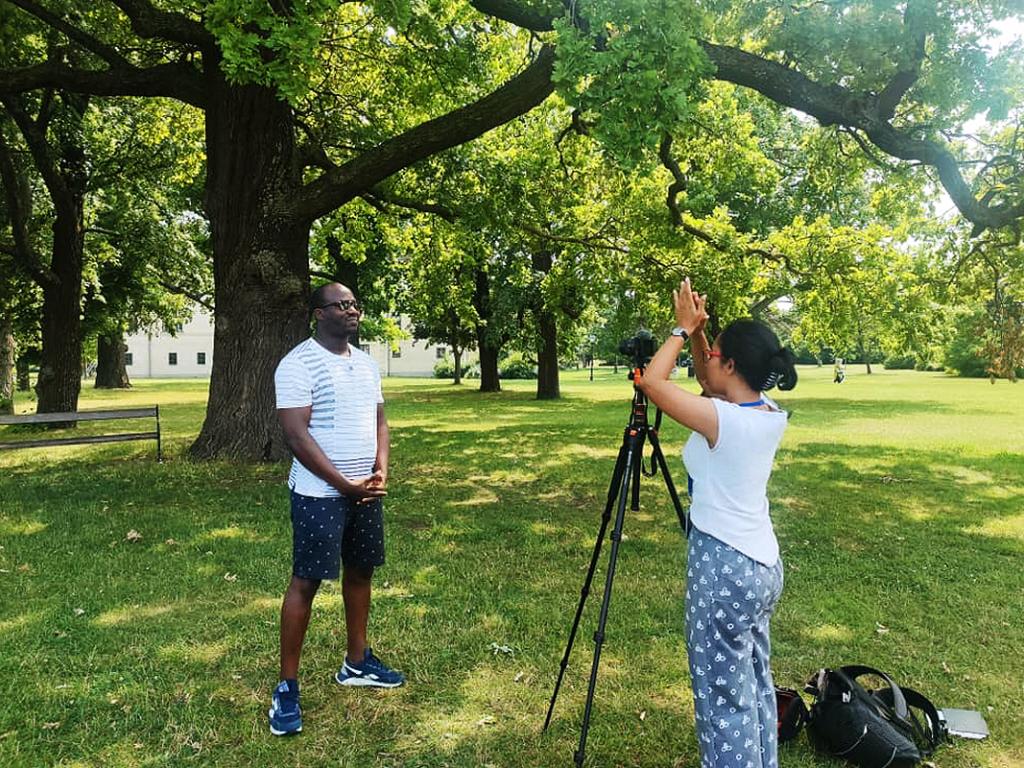IIASA's Young Scientists Summer Program: International research collaboration in action

By Dr Ifedotun Aina | Senior Researcher, WPE
I had the privilege to attend the Young Scientist Summer Program (YSSP) at the International Institute of Applied Systems Analysis (IIASA) in Vienna, Austria, from 1 June to 31 August 2023. My experience was both enlightening and transformative. I was able to engage in cutting-edge research, collaborate with fellow young scientists from diverse backgrounds and gain valuable insights into the world of systems analysis and interdisciplinary research.
The YSSP, an annual program since 1977, brings together 50 doctoral students from across the globe to tackle scientific projects related to their PhD studies. IIASA focuses on multidisciplinary research to address global challenges like climate change, biodiversity loss, and energy security through international cooperation.
During my time at IIASA, I was part of the Water Security (WAT) Group and worked on a research project investigating the potential of water pricing policies and implementation of water-saving technologies as catalysts for improving water use efficiency in the Western Cape province, South Africa. We employed a hydro-economic optimisation framework that integrates both river water flows and agents’ behaviours to analyse the effects on water use of a) urban and agricultural infrastructure modernisation and b) water pricing policies at the river basin scale in the Western Cape Water Supply System (WCWSS).
One of the most remarkable aspects of my experience was the vibrant and collaborative research environment at IIASA. The institute attracts top researchers and experts, and I had the privilege of interacting with some of the brightest minds in the field. The mentorship I received was instrumental in shaping my research skills and guiding me through the intricacies of my project. My time at IIASA was not only about academic and research pursuits; it was a holistic experience. I had the chance to immerse myself in Austrian culture, explore the beautiful city of Vienna and build lasting friendships with fellow YSSP participants. As I reflect on my experience at IIASA and the YSSP, I am deeply grateful for the opportunity to contribute to meaningful research and be part of a global community of young scientists committed to making a positive impact.
Project details
Program: Biodiversity and Natural Resources (BNR), IIASA YSSP 2023
Program director: Dr Petr Havlík
Research project: Modelling economic productivity and environmental flows under drought: a hydro-economic methodology for the food-energy-water nexus
Mentors: Dr Sylvia Tramberend and Dr Taher Kahil
Abstract: The sustainable management of water resources faces the difficult task of coordinating multiple, often competing uses of water in a way that balances environmental and socioeconomic demands. The complexity drastically increases in many urban regions where climate change alters water availability, and water resource allocation must account for the interdependencies between food production, energy generation, and water networks. This study will employ an optimisation framework that uses historical water availability and economic benefit patterns across the food-energy-water (FEW) nexus in the Western Cape Water Supply System (WCWSS). The large water system supports a population of 6.2 million in the Western Cape Province of South Africa. The objective is to develop an integrated hydro-economic model for assessing the value of water resources and the potential effects of different institutional water-sharing scenarios for a range of FEW nexus applications under varying water availability conditions. The modelling framework explicitly represents the connections and feedback between hydrologic systems (e.g., river and stream networks) and economic systems (e.g., agriculture, energy production, and urban consumption). This study will provide an approach that optimises and replicates base water use conditions in order to build system capacity and adapt to future water stresses in water-scarce areas.
